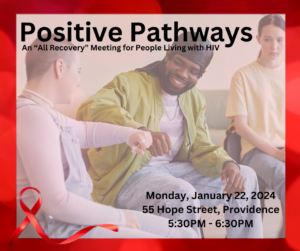
In a recent USA Today article, Surgeon General Dr. Vivek Murthy announced the arrival of an epidemic that should capture all of our attention, and it may come as a shock to some of us: loneliness.
“Loneliness is detrimental to mental and physical health, experts say, leading to an increased risk of heart disease, dementia, stroke and premature death,”[1] according to the article published on Christmas Day. As more and more Americans are reporting feelings of loneliness, many are calling for a new framework in public health that addresses this growing concern whose most formidable opponent is social connection.
The reality of the impact of loneliness should not truly be news to anyone. The Big Book of Alcoholics Anonymous, first published in 1935, speaks of loneliness plainly, and poignantly: “Almost without exception, alcoholics are tortured by loneliness.”[2] So Bill W. and his fellows composed 12 steps to recovery that centered on healing relationships, and reaching out to others. Nearly immediately, the founders of Alcoholics Anonymous recognized that a decrease in loneliness and an increase in fellowship was a sign of successful recovery.[3]
Another community that has seen the impact of loneliness is those who’s lives are impacted by HIV/AIDS. The first HIV activists recognized this as well, inspiring them to come together and turn loneliness into fellowship. Small groups formed to plan coverage for meals and visitation with the sick and dying. Many of these small groups would go on to become AIDS Service Organizations (ASO), and despite the many advancements in HIV treatment we continue to see the same needs today. Loneliness driven by stigma and fear continues to be just as formidable an opponent today as it was when the virus first arrived in the 1980’s.
For all of these reasons, APRI is delighted to host an “All Recovery Meeting” for people living with HIV. Faces and Voices of Recovery offers a simple definition of these meetings: “An alternative to 12-step meetings, ‘All Recovery’ meetings welcome all who struggle with addiction, are affected by addiction, or support the recovery lifestyle.” [4] They do not define recovery as abstinence, nor do they require a particular pathway to recovery: they don’t have steps, or a formal governance structure like AA or NA. Rather, they are an opportunity to build fellowship among folks who are fighting the same fight as you in order to learn from one another, and find empowerment from fellowship.
I hope you will consider joining us on Monday, January 22, from 5:30PM – 6:30PM for our first such meeting, Positive Pathways. I leave you with the words of Bill W.: “To watch people recover, to see them help others, to watch loneliness vanish, to see a fellowship grow up about you, to have a host of friends – this is an experience you must not miss.”[5]
[1] Loneliness is at epidemic levels and it’s killing Americans (usatoday.com)
[2] Big Book of Alcoholics Anonymous, p. 57
[3] Big Book of Alcoholics Anonymous, p. 89
[4] All Recovery Meeting Format – Faces & Voices of Recovery (facesandvoicesofrecovery.org)
[5] Big Book of Alcoholics Anonymous, p. 89